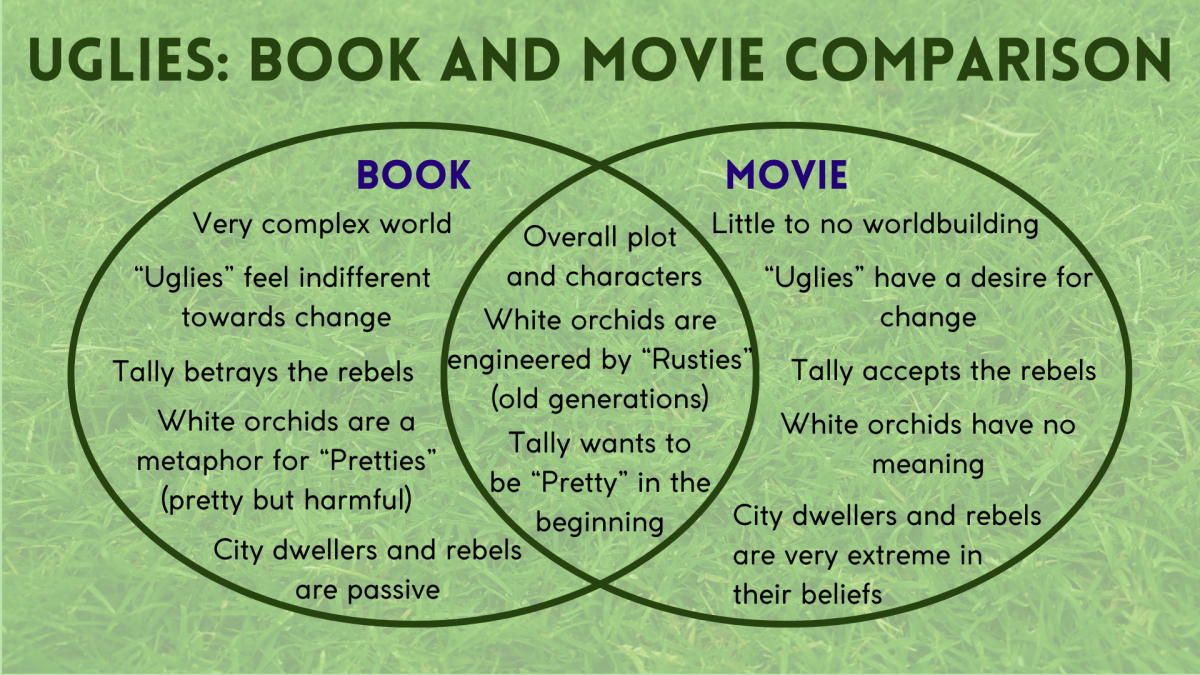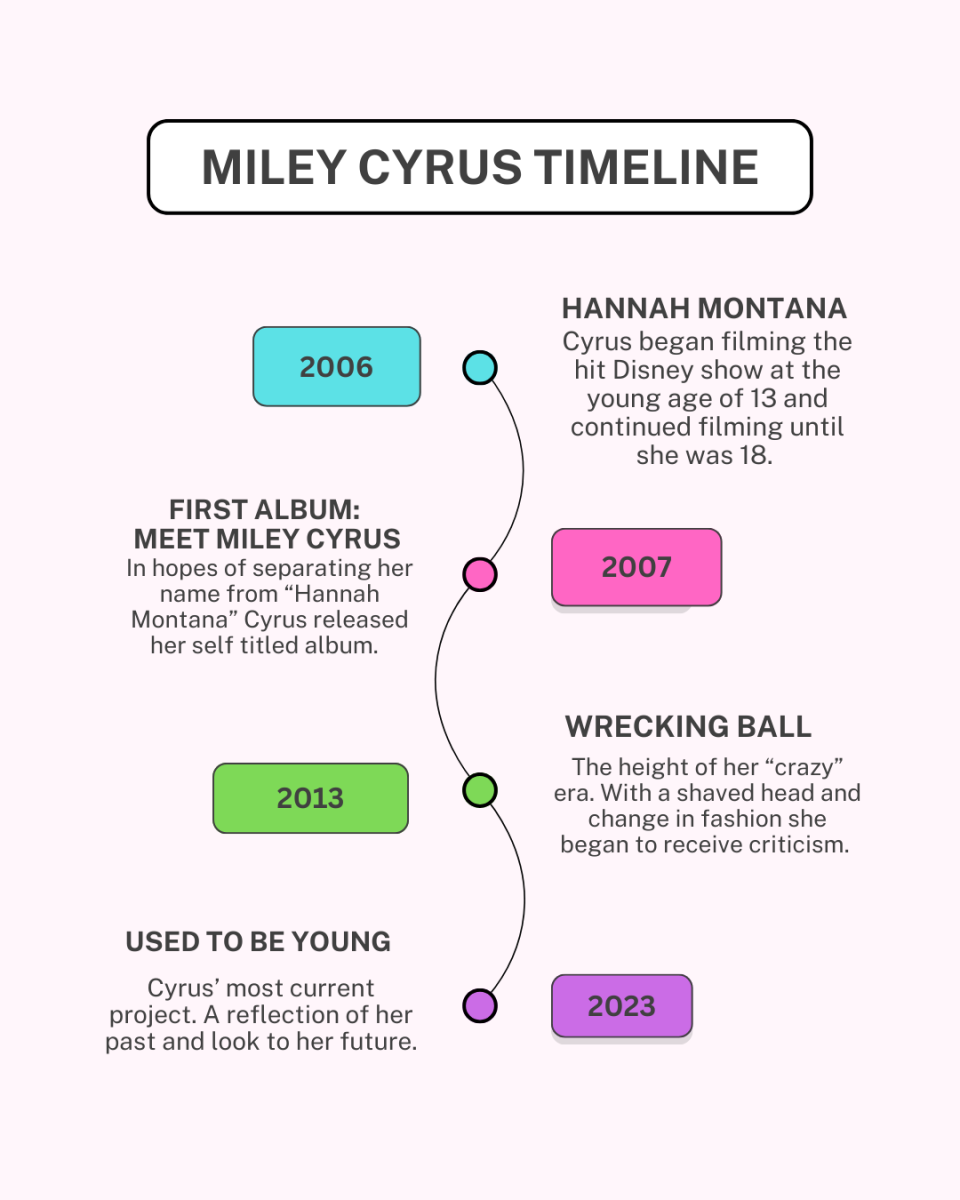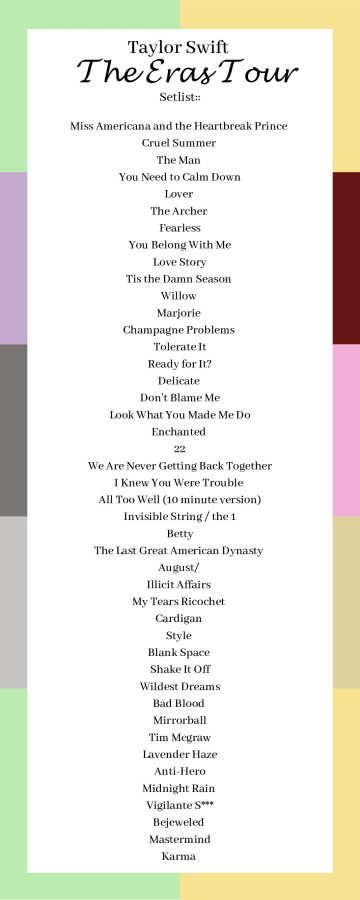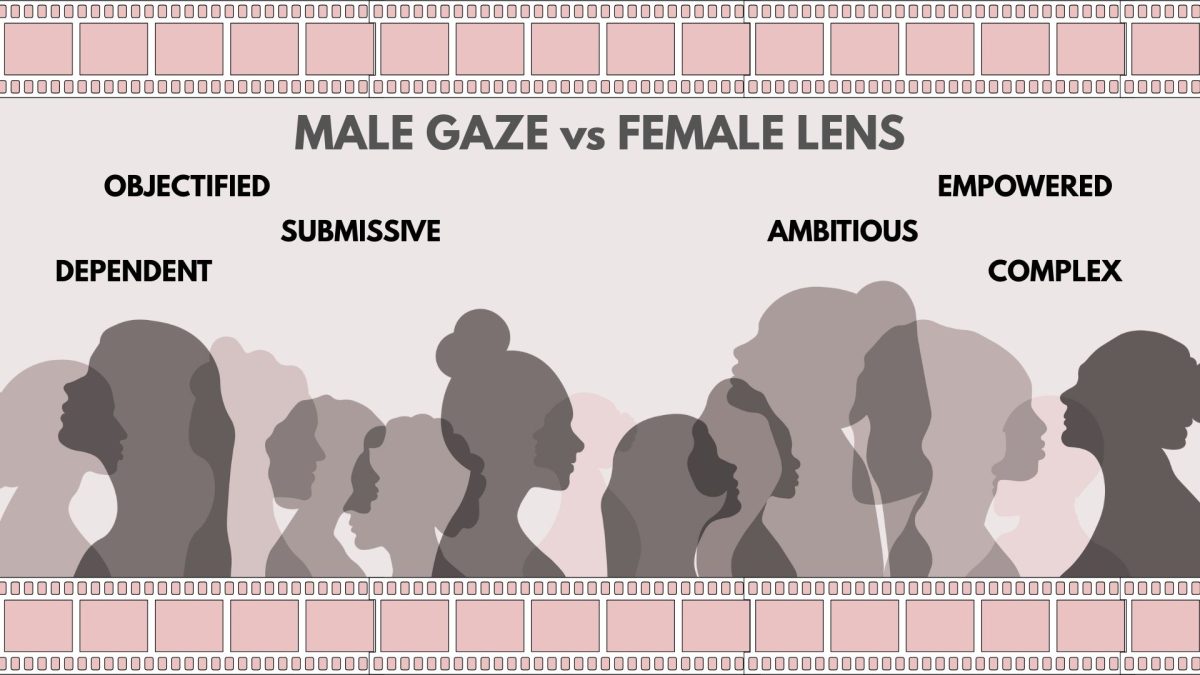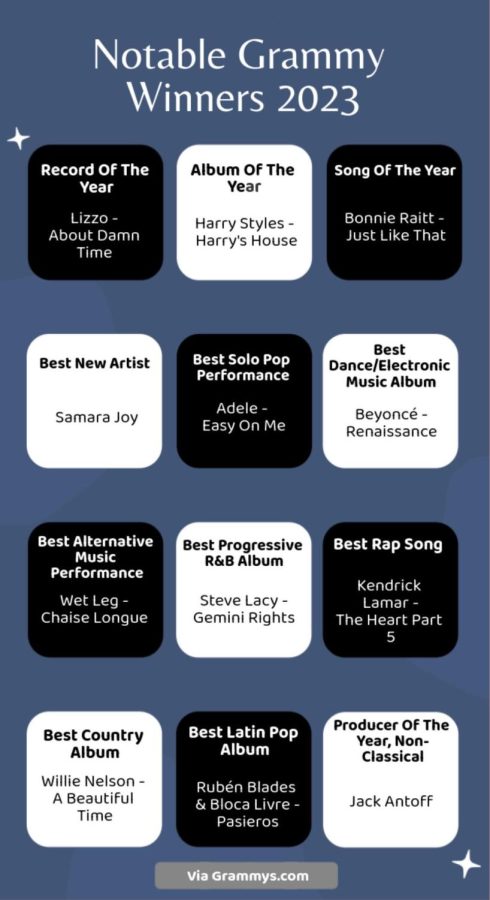History, voting process, 2023 winners: an inside look into the Grammys
Some of the winners of the 65th Grammys.
March 1, 2023
Harry Styles. Beyoncé. Kendrick Lamar. These are just some of the notable winners of the highly anticipated 65th annual Grammys held Sunday, Feb. 5 2023. Over 12.4 million Americans tuned in to watch some of their favorite artists win awards. But, watching the Grammys has led many people to wonder who decides who wins what awards, and how voters are selected.
The very first Grammys were held May 4, 1959, and began as a dinner and award ceremony held by industry elites such as Frank Sinatra. There were functions on both of the U.S. coasts, and the Grammys were characterized by being able to balance a range of performances, from comedy skits to musical performance. Right away, the newly founded Grammy was being compared to well-established awards such as the Oscars and Emmys.
Over time, the Grammys exploded in popularity. By the 13th ceremony in 1971, it was televised live. In the present day, only one ceremony is held, but it changes locations every year. Because of the notoriety of these awards, voting must be handled delicately. The Grammys pride themselves on their winners being decided by their industry peers.
Everyone in the Academy must follow strict requirements and most notably, have credits on six commercially-released tracks or credits from 12 digital-only releases. Having credit on a song means that you contributed to it in some way, from songwriting, to producing, to mixing. There are also other “blue-ribbon groups” of Grammy voters, which are special committees that grant merit-based awards, among other things.
Music eligible for a 2023 Grammy must have been released between Oct. 1, 2021, and Sept. 30, 2022. Artists that released music during this period could be nominated by members of the Recording Academy and record companies from July 18, 2022, to Aug. 31, 2022. Then, more than 350 experts,including those in the Recording Academy, are consulted and place nominees in the fields that are appropriate for them.
The artists, songs, and records then go through numerous rounds of voting, with each voter being able to vote in the four main categories (best new artist, album of the year, record of the year and song of the year) and a maximum of 20 additional categories. Importantly, those that work in specific musical categories are not limited to voting in those categories. The final ballots for the Grammys are due to Deloitte accounting firm by Jan. 16, and that final date has remained consistent.
The Grammys have undergone many changes throughout its history. In 2023, there were five more categories added that the Recording Academy could vote on: Songwriter Of The Year, Non-Classical; Best Alternative Music Performance; Best Americana Performance; Best Score Soundtrack For Video Games And Other Interactive Media; and Best Spoken Word Poetry Album. There is also another added merit award that the blue-ribbon group votes on: Best Song For Social Change. Through its expansion and growth, the objective of the Grammys has stayed the same: to recognize outstanding music as decided by people in the music industry.
The winners of the 65th Grammys were long awaited by music consumers and critics alike. But similar to all Grammys. As with previous years, these decisions sparked both admiration and controversy among viewers, particular on social media.
























